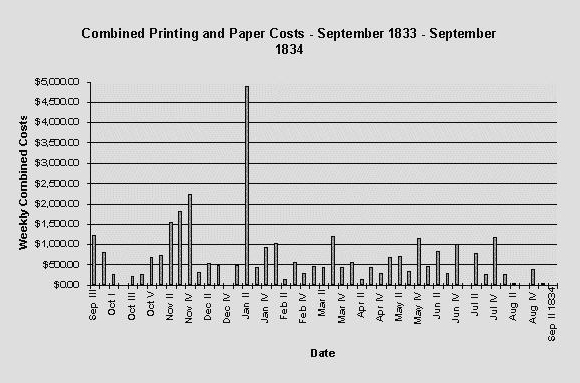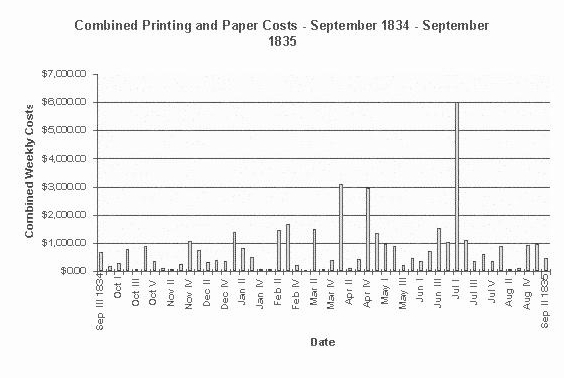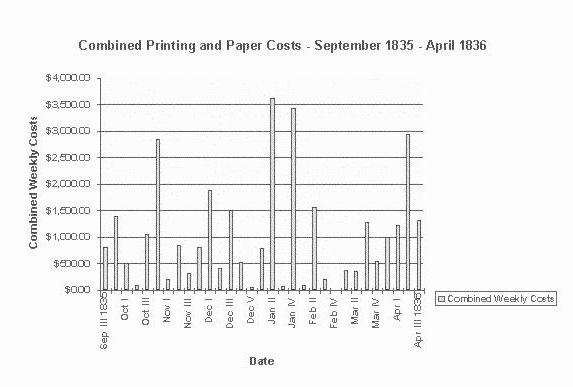Seasonal Variations
Thought of as a manufacturer, Carey & Lea would have wanted their pace of work, expenses, and output to be level throughout the year. Seasonal variations, whether in sales, or production, would inevitably lead to slack times, and, more disturbingly, to sudden spurts in bills which would need to be paid from ready cash. Despite this, Carey & Lea's production schedule, as revealed by its receipts, had distinct seasonal variations.Account Book for Carey & Lea, volume 38 consists of entries, entered
chronologically, for all payments made by the firm from September 1833 to
April 1836.(18) An analysis of it revealed
definite seasonal variations when the entries were displayed by date:



The charts show a pre-Christmas bulge of payments, a dearth of payments over the Christmas holiday itself, followed by a spurt of payments in the first three weeks of January. This pattern is most consistent for the years 1833 - 1834 and 1835 - 1836. The intervening year, 1834 - 1835, is a special case and will be explained below.
Most of the bills recorded in the Account Book were on terms of four to six months. A typical account entry (#167) is that from January 9th, 1834, of a bill received from J. Kates & Co., a book bindery: "on account their note Jany 9th at 5 mos $500, Jany 9th at 7 mos for $500, Jany 10th at 6 mos for $470.90." This bill records the entry, on account, of three bills from J. Kates & Co. "Their note Jany 9th" refers to a bill received on that date, and the "Jany 10th" entry was tacked on the next day. "At 5 mos", "at 7 mos" and "at 6 mos" defines the terms: these bills were to be paid no more than five, seven, and six months after they were incurred. It is likely that the suppliers to Carey & Lea held their bills until after Christmas, knowing, perhaps, that it would be more polite to wait until Christmas revenues had arrived; or, perhaps, the publishers themselves would choose not to recognize a bill until they had cash available to pay it. The Account Book's entries imply an immediacy, "on account their note Jany 9th", which in all probability did not exist in real life.
